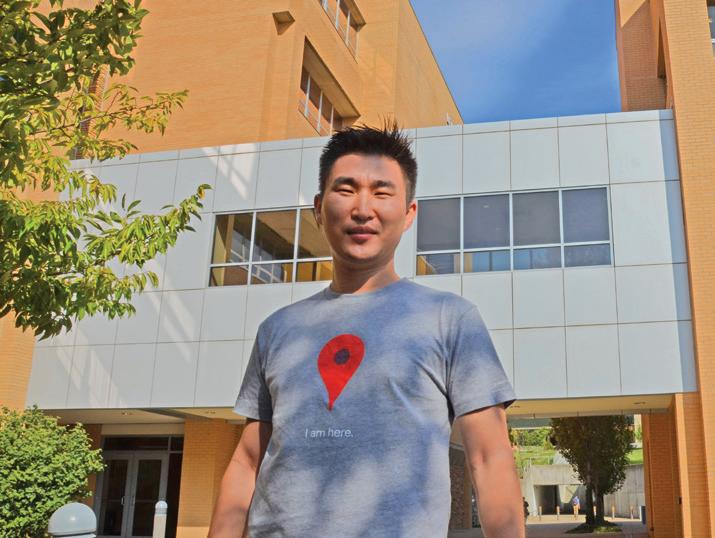
3 minute read
KU Engineering Alumnus Helps Develop App to Assist with Responsibly Reopening Campus
KU Engineering Alumnus and Google Earth Co-Creator Helps Develop App to Assist with Responsibly Reopening Campus
by Joel Mathis
Advertisement
After a successful pilot project, the University of Kansas reopened to students, faculty and staff this fall by requiring them to use a mobile health app to check for symptoms of COVID-19 before allowing them entrance to campus buildings.
The app was created by CVKey Project, a nonprofit initiative co-founded by former Google vice president Brian McClendon, a KU alum and a research professor in the School of Engineering. KU was the first community to test the CVKey app, but project officials are in talks to provide the service to other universities and organizations.
“The goal was how we can build tools that will allow the world to reopen responsibly,” McClendon said. “That’s our focus.”
CVKey app users can conduct a self-assessment of their COVID-19 health status at home and then generate a QR code to verify their access to campus buildings—and to know that others have done the same.
By using the app, individuals do not have to disclose personal health information. The self-assessment and health-related information are strictly confined to the user’s mobile device. No personal health data is shared or stored outside the mobile device. The only information the QR code provides when scanned is a simple yes or no indication of whether a person’s health assessment meets the criteria to enter the building that day. The app cannot be used for other functions, such as location tracking or contact tracing.
In addition to providing a safeguard for users of campus buildings, the app can provide an early warning to individuals that they may have symptoms of the coronavirus. CVKey’s symptom checker is updated regularly according to the CDC’s most recent guidelines and the advice of the project’s Council of Experts.
“That is the plan—that the app will guide people who have symptoms or exposure to follow up with Watkins Health Services, follow up with testing, follow up with a doctor to find out what’s going on,” McClendon said.
The app was tested in six KU campus buildings over the summer, allowing researchers to access their labs. McClendon said that more than 500 scans were performed each day during the pilot project. At first, app users presented their QR codes to a staffer at the building entrance—but staffers were replaced at the beginning of the fall semester with iPad kiosks that were used in nearly all academic buildings.
CVKey is designed to overcome a key challenge to the adoption of similar health-tracking applications: fears about privacy. Efforts in Utah and North Dakota to use GPSenabled contact tracing apps have failed because of such concerns. McClendon testified about the issue in July before the U.S. House Financial Services Committee. “The biggest one was fear that either ‘big gov’ or ‘big tech’ was tracking anyone who installed it,” he told the committee.
With CVKey, he said, “We built the app entirely focused on privacy.” This application specification details the privacy architecture that underpins the app suite that CVKey Project developed with input from outside experts.
“We’ve done a lot of work to design a system that does not leak data or allow people to be tracked,” McClendon said. “We think that’s going to be important to marketers and consumers.”
KU administrators will also be able to use CVKey to more consistently communicate and manage COVID-19 protocols and update them as conditions evolve. “People who are going to one of these places can know what the policies










